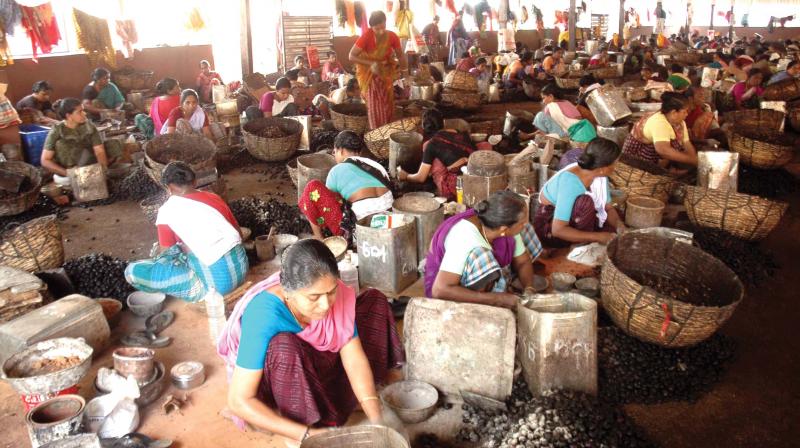Mechanisation can save cashew business, say experts

KOLLAM: The cashew industry in Kollam can be revived through mechanisation in processing. But the entrepreneurs fight shy of it as it is opposed by trade unions citing job loss to the workers. “Vietnam has outdone us through mechanisation in their processing units. We still depend on manpower which is costly. The quality of cashew processed by hand is not adequate. The competitiveness is also lost as the raw cashew is purchased from abroad and is sold out in the same market,” Dr. R.K. Bhoodes, chairman of Cashew Export Promotion Council of India (CEPCI) , told DC.
In Vietnam, the main competitor of Kollam in cashew trade, the processing cost of a bag of 80 kilograms of raw cashew is nearly Rs 800 whereas it is Rs 3,200 – Rs 3,400 in Kerala. In Tamil Nadu, it is Rs 2,200- Rs 2,400 while in Andhra Pradesh it is below Rs 1800. In Orissa and West Bengal it is at par with the cost in Vietnam. The entrepreneurs also want mechanisation as the new generation is not willing to take up the job of cashew peeling or shelling. In factories where mechanisation has been implemented partially also, workers have not lost their jobs.
Meanwhile, the scarcity of raw cashew remains the major issue in mechanisation. Only 15 bags of raw cashew are processed per day on an average in a factory having 100 employees. When the same is mechanised, 50 bags can be processed at a time. The number of working days will be reduced proportionately if mechanisation is implemented by maintaining the number of workers. Kerala has nearly 800 cashew factories of which more than 50 percent remain closed after the announcement of 35 percent hike in their minimum wages.
This has also reflected in the import of raw cashew. As much as 7.5 lakh metric tonnes of raw cashew was imported this year while it was 9.5 lakh metric tonnes last year. India exports an average of 82,302 MT of cashew, bagging Rs 5168 crore per year. The cashew from India has customers in over 75 countries, including the US, Canada, Dubai and Netherlands. This market has now been captured by Vietnam owing to low processing rates in the country. The private sector wants the government to support them by providing subsidies for mechanisation and by undertaking fringe payments, including PF and gratuity to workers.

